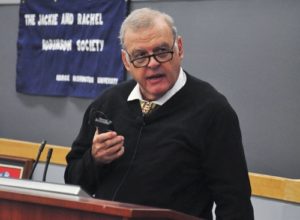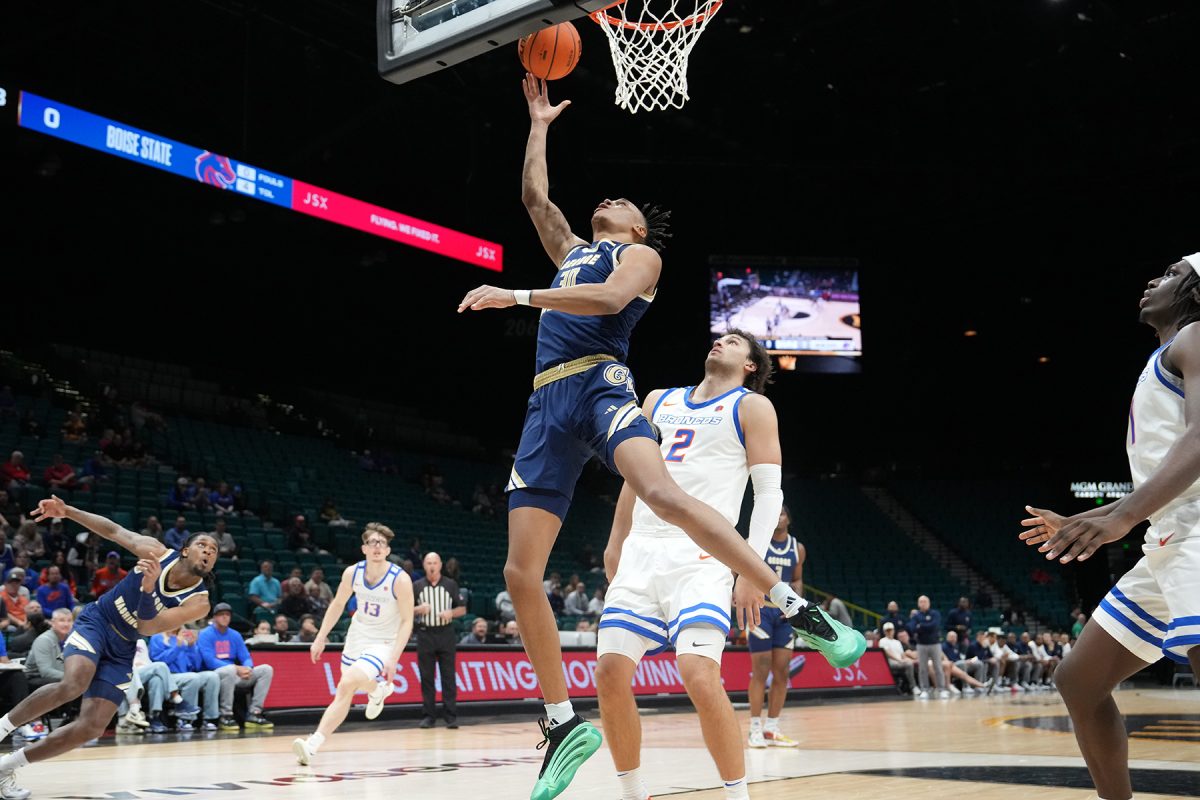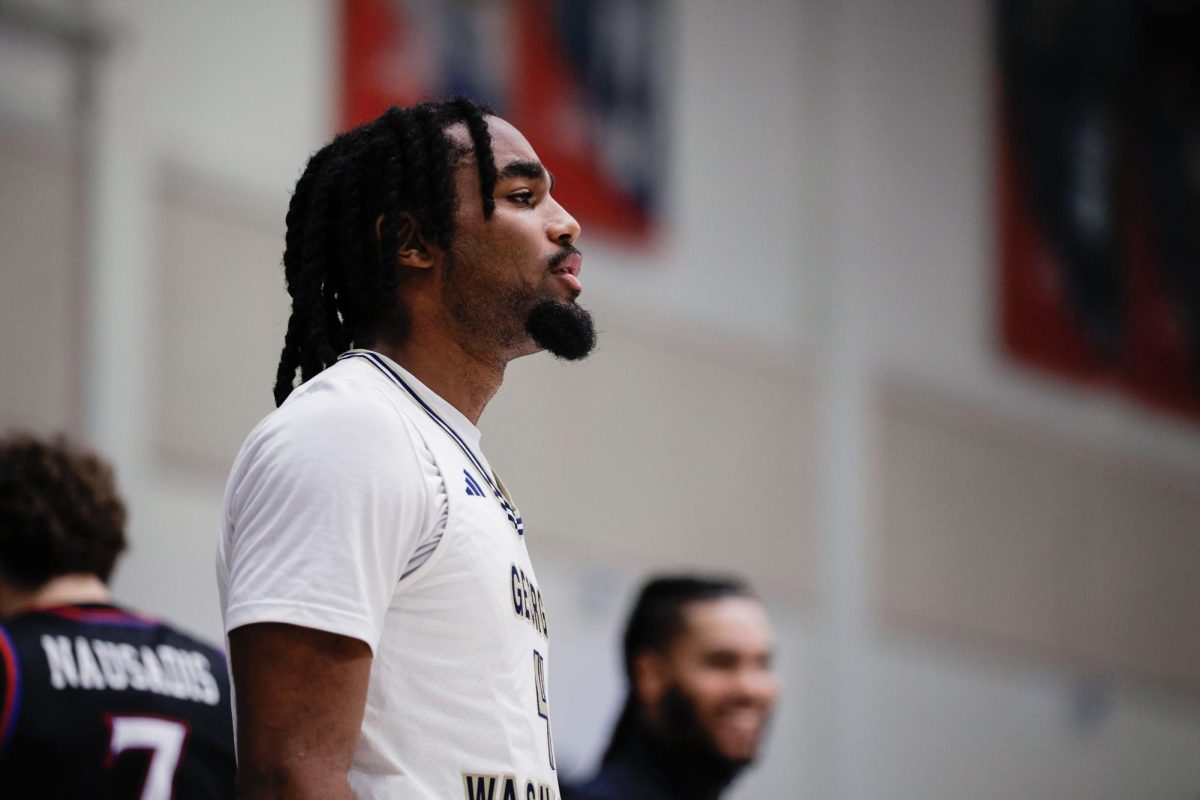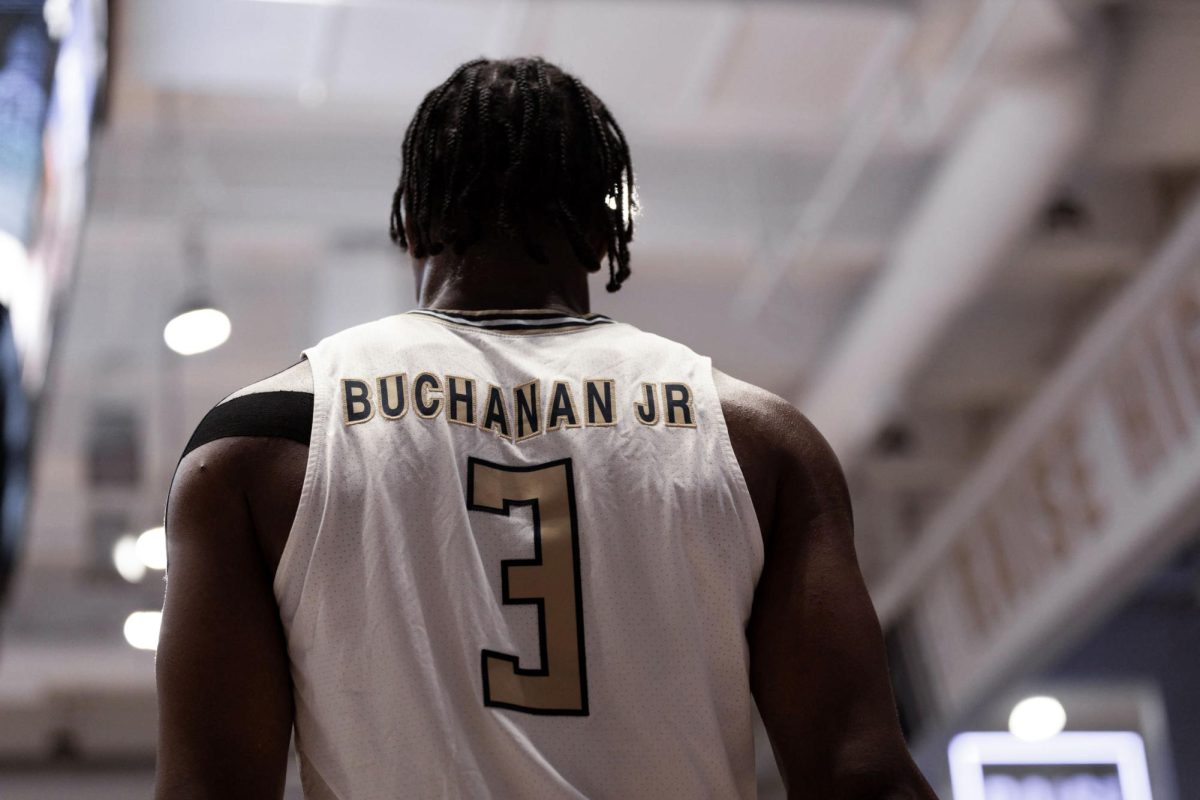
This post was written by Hatchet staff writer Jake Dietcher.
Tuesday’s 16th annual Jackie Robinson Night paid tribute to the groundbreaking second baseman and celebrated historian Lonnie Bunch, this year’s recipient of the Jackie Robinson Society Community Recognition Award.
Bunch is the founding director of the Smithsonian’s National Museum of African American History and Culture and served as the president of the Chicago Historical Society.
Bunch said he was never a baseball fan until at 15 years old, he overheard a conversation between the men of his family about the greatness of Jackie Robinson. After that moment, Bunch began following America’s pastime.
“This whole series began as a one year, one shot, 50th anniversary celebration,” Richard Zamoff, associate professor of sociology and the director of the Jackie Robinson Project, said. “It’s become a national project. It’s institutionalized itself as an ongoing cause. It’s reached out from the GW community to impact thousands of kids in America.”
The Jackie Robinson Project began in 1996 as an effort to commemorate Robinson’s first season with the Brooklyn Dodgers, leading to the formation of the Jackie Robinson Society in 1999. The society was created by students who wanted to continue to explore and honor the life of Robinson, and now sponsors discussions about Robinson, spearheading participation in community service projects.
While many know that Robinson broke the color barrier in Major League Baseball in 1947, Zamoff said Robinson’s social impact off the field is an integral part of his legacy.
“Learning about Jackie Robinson is relevant for anyone who wants to learn american history,” Zamoff said. “He is a historical figure, not simply a baseball player. Most GW students don’t have a clue that he did anything besides just play baseball and break the color barrier. His impact was greater than that.”
The night’s events featured a presentation from one of Robinson’s closest friends, Ron Rabinovitz, who reflected on Robinson’s undying patience as a ball player. Rabonivitz recalled Robinson sharing memories of opposing players stomping on his hands and throwing baseballs at his head.
Despite all that, Rabinovitz said, Robinson remained determined to fight back against the evident social inequality.
“What many overlook is that Jackie did it alone,” Rabinovitz said “He did it without Martin Luther King Jr., without the Civil Rights Movement and without Rosa Parks. He was truly one of a kind.”
The Jackie Robinson Society will host its next speaker series event in November, striving to continue its original mission of educating the public on Robinson’s life and impact. Since the Society’s inception, its audience has spread, magnifying its impact beyond University parameters.
“In its time, the Project has become much larger and it is no longer just a D.C. project,” Zamoff said. “At the same time it has grown and made a larger impact at this university. People at this university now understand that this isn’t a sports project. It’s a legitimate intellectual and academic series.”






